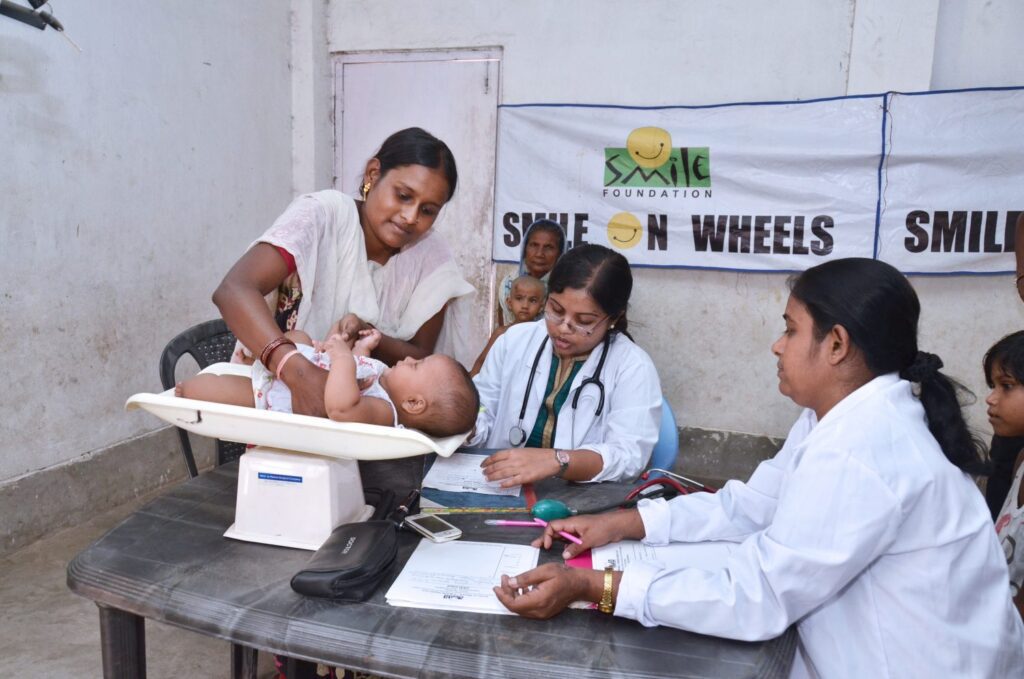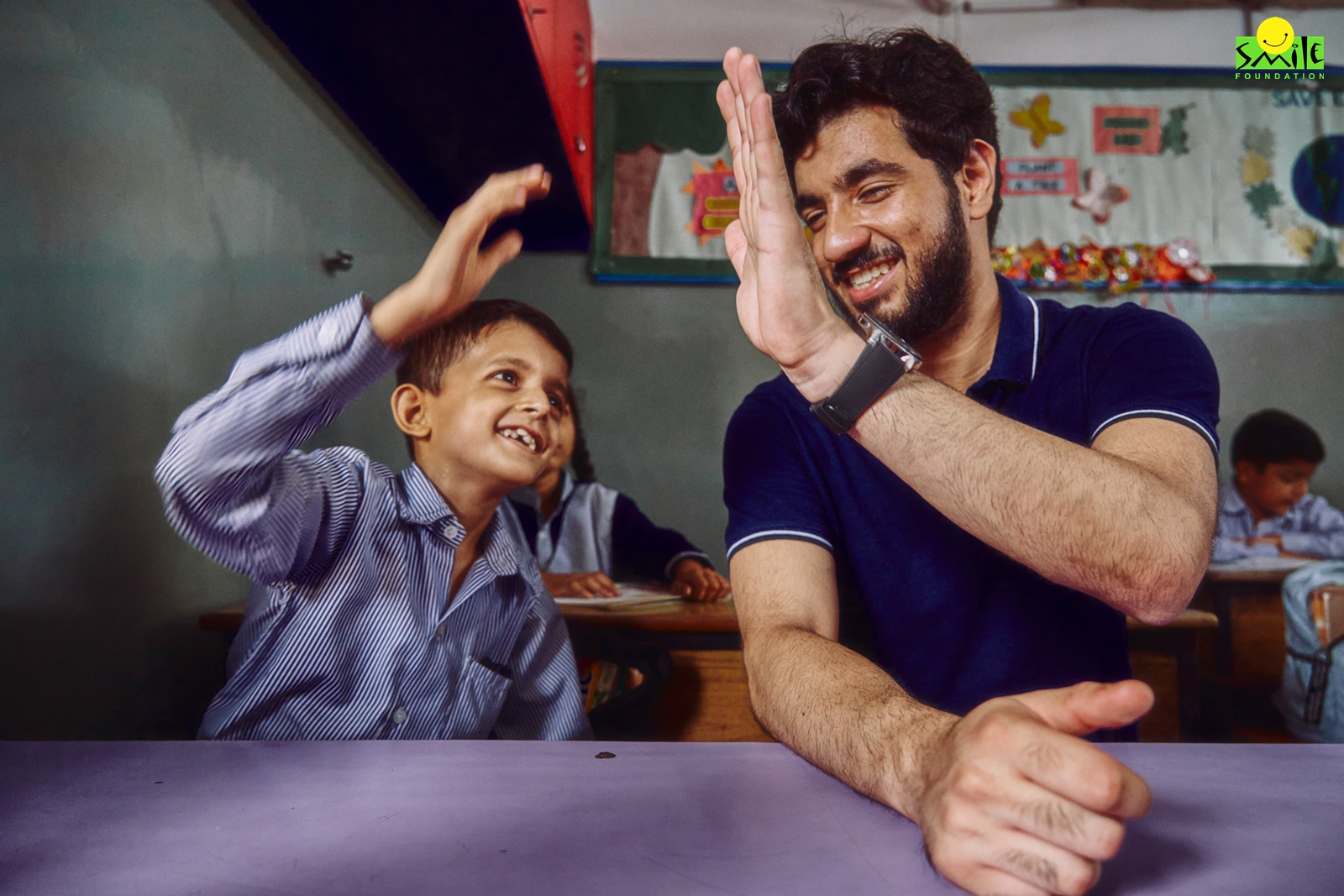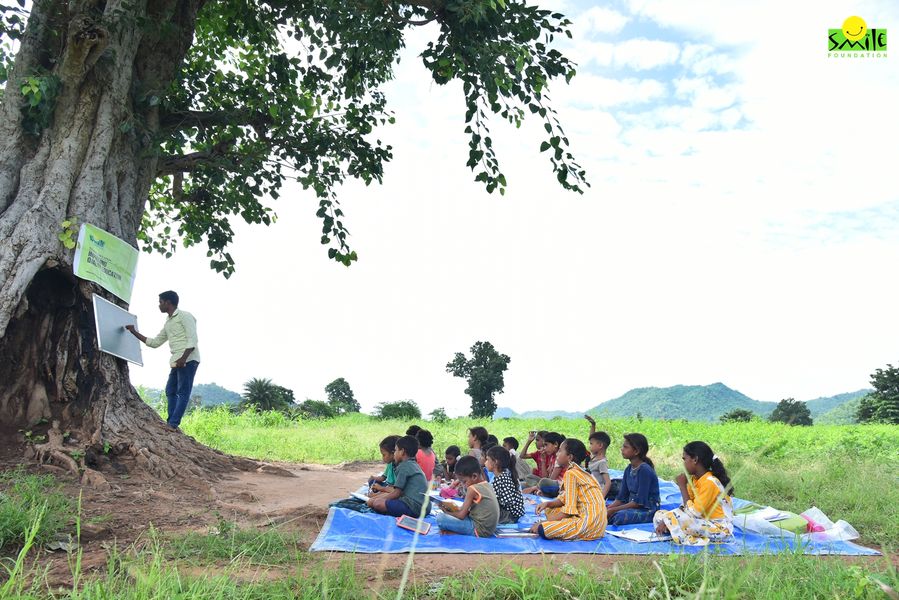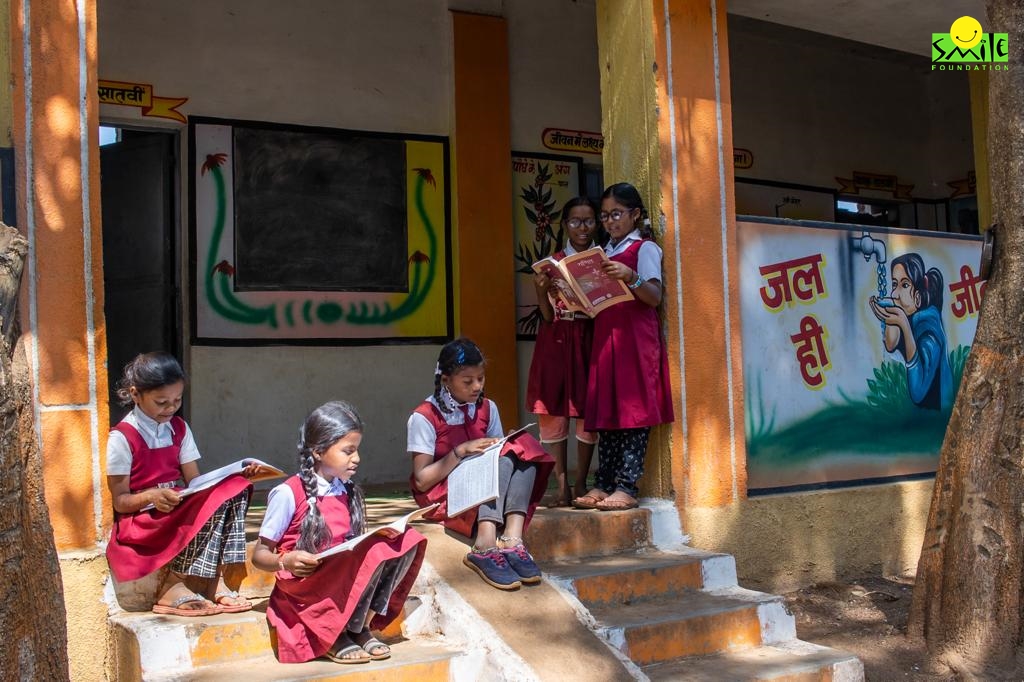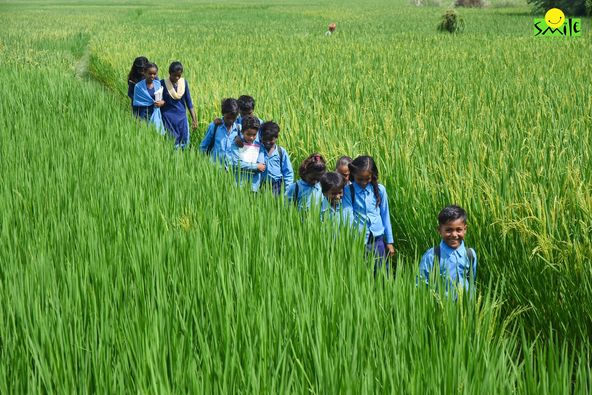Smile on Wheels provides doorstep quality and affordable healthcare services across 585 villages of the country.
Qualified doctors are the most important part of any healthcare infrastructure. Today on the National Doctor’s Day observed on 1st July every year, we at Smile Foundation on behalf of the communities we serve, together would like to acknowledge the dedication and passion with which they drive Smile on Wheels (SoW) mobile healthcare programme.
There are two aspects to the SoW programme, one is reaching the unreached and the second is providing quality and affordable or free healthcare service to the poor.
A Lancet Study as of March 31, 2015 shows that more than 8% of 25,300 India’s primary health centres were without a doctor, 38% were without a laboratory technician, and 22% had no pharmacist. Nearly 50% of posts for female health assistants and 61% for male health assistants remain vacant.
The reality is that only handful of doctors in the country want to work in the rural parts of the country. Lack of infrastructure, poor and uncertain wages, bad connectivity and little or no growth are major reasons for this demand supply gap, which is only increasing with time.
“The shortage of doctors in rural belts is also aiding the rise of quacks, who often make a killing at the expense of these poor vulnerable people who avoid going to bigger towns for treatment for fear of expense and loss of wages,” Dr. Shivkumar Ajwani from SoW Surat
“This free-of-cost door step health service is an honest effort to reduce out of pocket expenses for the poor, thereby helping them allocate their little resources to other critical needs like food and education,” he explained.
According to a study released by Public health Foundation of India in 2018, out-of-pocket health expenses drove 55 million Indians–more than the population of South Korea, Spain or Kenya–into poverty in 2017; and of these, 38 million (69%) were impoverished by expenditure on medicines alone. The study also showed that about 68% of the Indian population had limited or no access to essential medicines.
Under the Smile on Wheels initiative fully equipped medical vans – including an MBBS doctor and a qualified paramedic – travel to various corners of the country to meet the immediate health needs of the under-served populations. It looks like a definite measure to help bridge this gap.
These medical vans, about 40 so far, provide regular health check-ups, basic pathological tests and doctor consultation. As part of the mandate, the doctors and paramedics also hold awareness sessions in the community to sensitise the locals on health and hygiene issues.
“Poor or no access to medical needs and prohibitive costs attached are two important factors that are pushing poor communities deeper into poverty,” said Dr. Purabi Dutta from Kolkata, who handles Eastern Region for Smile on Wheels programme.
“When we go into the villages we find that for many even a manageable illness like diabetes or a blood pressure becomes a life inhibiting challenges, because of lack of timely intervention,” she said.
Data shows that even in the community health centres, the shortfall of doctors is huge—surgeons (83%), obstetricians and gynaecologists (76%), physicians (83%), and paediatricians (82%). Even in health facilities where doctors, specialists, and paramedic staff have been posted, their availability remains in question because of high rates of absenteeism.



